“If there is heaven on earth, it is here, it is here, it is here,” Amir Khusrao said, while describing Kashmir. He was speaking of Kashmir — a valley whose beauty has seduced emperors and wanderers alike, and whose cinematic potential has long made it a muse for filmmakers. But beneath its postcard surface lies a far more complicated story, one that many directors have dared to tell, even at the risk of controversy. Portraying Kashmir on screen is no small feat — the subject is emotionally volatile, politically fraught. And yet, some films have not only taken on that challenge, but risen to it. These works don’t merely use Kashmir as a backdrop; they echo Khusrau’s poetry while staring unflinchingly into the heart of its conflict.
Note: Two titles [Hamid (2018), Half Widow (2017)] aren’t streaming online.
Films on Kashmir
1. Harud (2010)

Aamir Bashir’s Harud doesn’t wade into the politics of Kashmir’s insurgency so much as it lingers in its aftermath — in the silences, absences, and small domestic ruptures left behind. Set during autumn (the season that gives the film its name), it follows Rafiq, a young man adrift after the disappearance of his brother, one of thousands gone missing in the valley. His failed attempt to flee across the border leads him not to escape, but to a discovery: his brother’s old camera. From there, the story turns inward, unraveling through metaphor and restraint. Harud doesn’t shout its message; it asks a quieter, more unsettling question: who does Kashmir belong to — and who is left behind to ask? The film premiered at the 2010 Toronto International Film Festival.
Where to Watch: Apple TV, YouTube (free)
Related: The Bengal Files (2025) Can’t See Through Its Own Smoke
2. Hamid (2018)
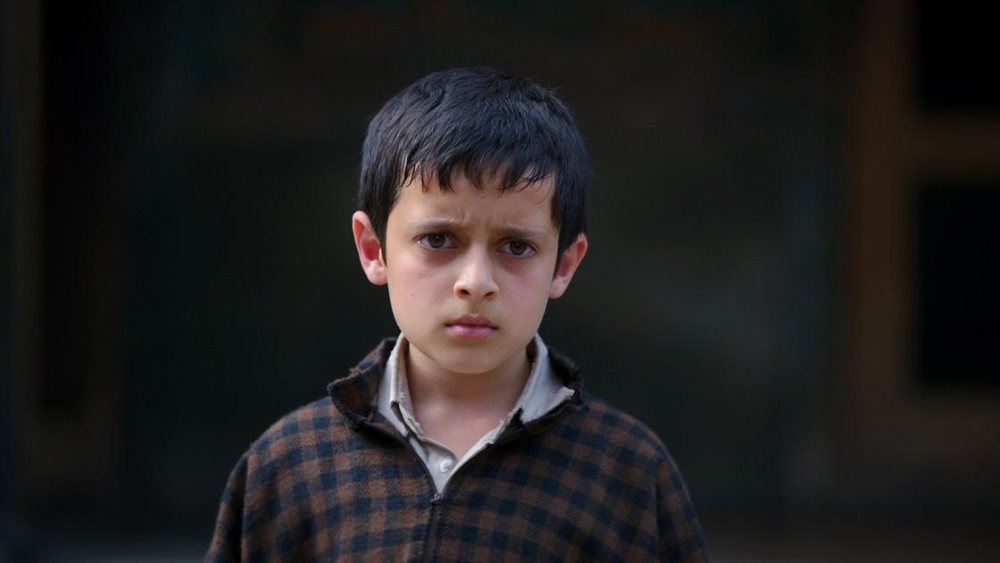
In Hamid, director Aijaz Khan adapts Amin Bhat’s play Phone No. 786 into a story that filters Kashmir’s conflict through the eyes of a child — and in doing so, strips it down to something achingly human. After his father disappears, young Hamid sets out to call God on a phone number he’s heard recited in faith and desperation. What follows is less a negotiation with Allah than a search for meaning in the wreckage of loss. The film sidesteps grandiosity; its emotional power lies in its simplicity — quiet images, unspoken grief, and the resilient logic of a child who refuses to accept the world as it is. With echoes of Iranian cinema, Hamid resists the impulse to explain Kashmir. It chooses, instead, to feel it.
Where to Watch: NA
3. Shikara (2020)
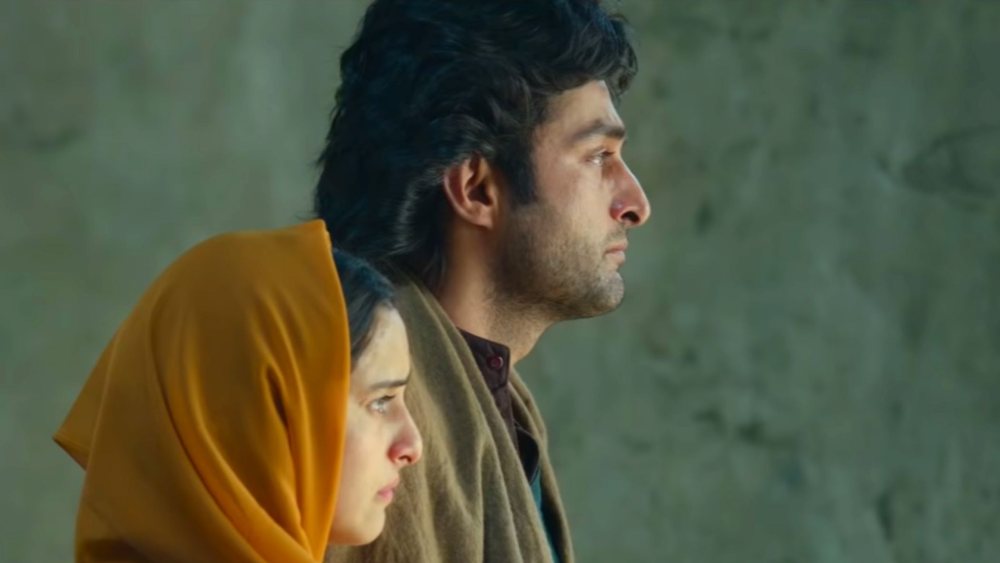
Shikara is Vidhu Vinod Chopra’s most personal film — a love story framed by one of modern India’s most politically charged events: the exodus of Kashmiri Pandits. Loosely inspired by Rahul Pandita’s Our Moon Has Blood Clots, the film follows a couple whose romance is ruptured by the rising tide of violence in the valley. Chopra doesn’t sensationalize; instead, he threads personal memory through historical trauma, drawing attention to the quieter devastations of displacement. The production design and cinematography conjure a Kashmir now largely vanished from public memory. What lingers most, though, is the film’s belief — perhaps idealistic, perhaps necessary — that empathy and forgiveness still have a place in the wreckage.
Where to Watch: Prime Video
4. Yahaan (2005)
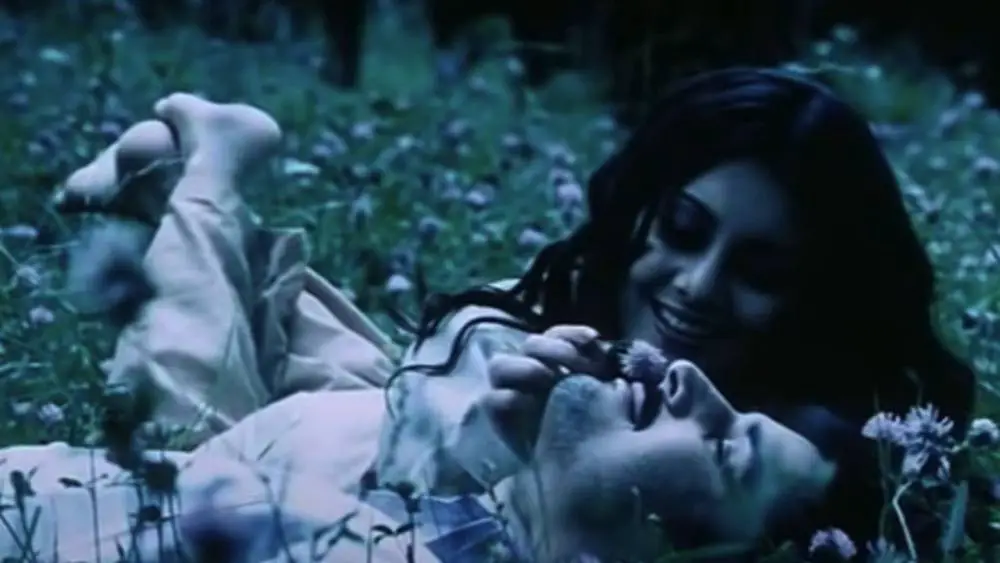
Shoojit Sircar’s debut feature, Yahaan, finds a love story in the middle of a battlefield — not by softening the backdrop, but by refusing to dramatize it. Set in a militarized Kashmir, the film navigates the terrain of loyalty, loss, and longing without succumbing to polemic. Jimmy Sheirgill carries the film with quiet urgency, anchoring a narrative that walks the line between intimacy and political tension. Sircar avoids grand gestures; his focus is on the human scale — moments between people, not ideologies. Gulzar’s lyrics, Shantanu Moitra and Nizami Bandhu’s music provide the emotional undercurrent, with Naam Ada Likhna still echoing long after. Visually, the film leans into cool blues and greys, a palette that matches both its restraint and its sorrow.
Where to Watch: YouTube
5. Tahaan (2008)
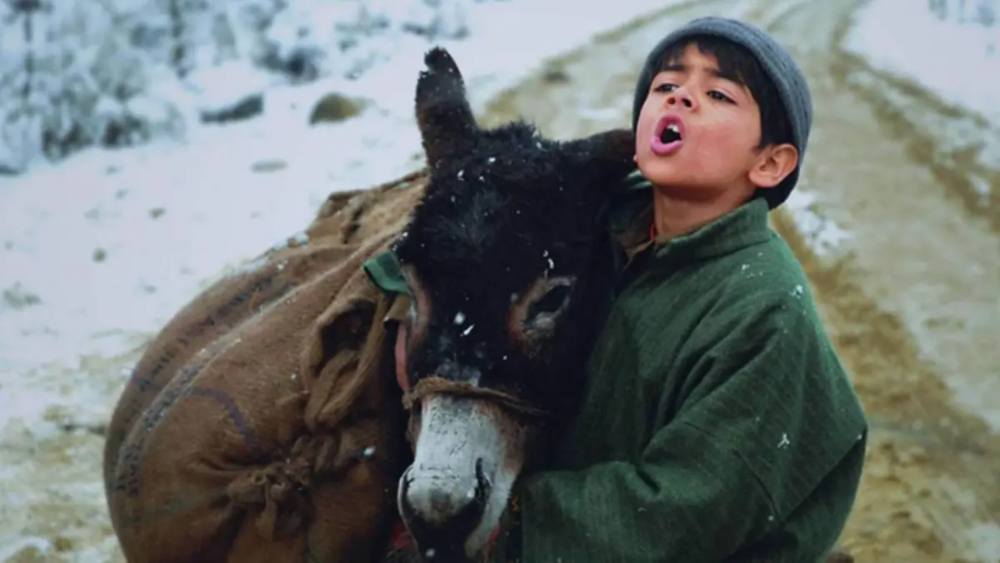
Directed by Santosh Sivan, Tahaan begins with a lost donkey and ends with a child holding a grenade. What unfolds in between is a quietly unsettling journey through the hills of Kashmir, seen through the eyes of a boy too young to fully grasp the politics that surround him. Like Hamid, the film leans into the innocence of its child protagonist, drawing stylistically from Iranian cinema, where simplicity often masks deeper fractures. Sivan, as always, frames the landscape with painterly precision — all mist, shadow, and sacred silence. Tahaan doesn’t shout its message; it lets the terrain and its smallest characters do the heavy lifting. In its final act, innocence collides with ideology — and the fallout is heartbreakingly soft.
Where to Watch: Prime Video
6. Inshallah Football (2010)
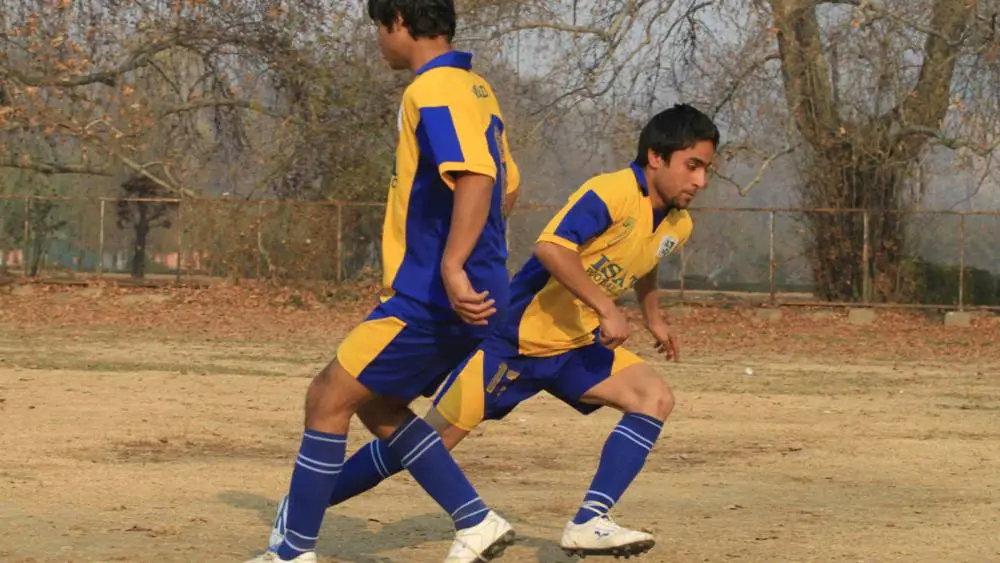
7. Shaurya (2008)
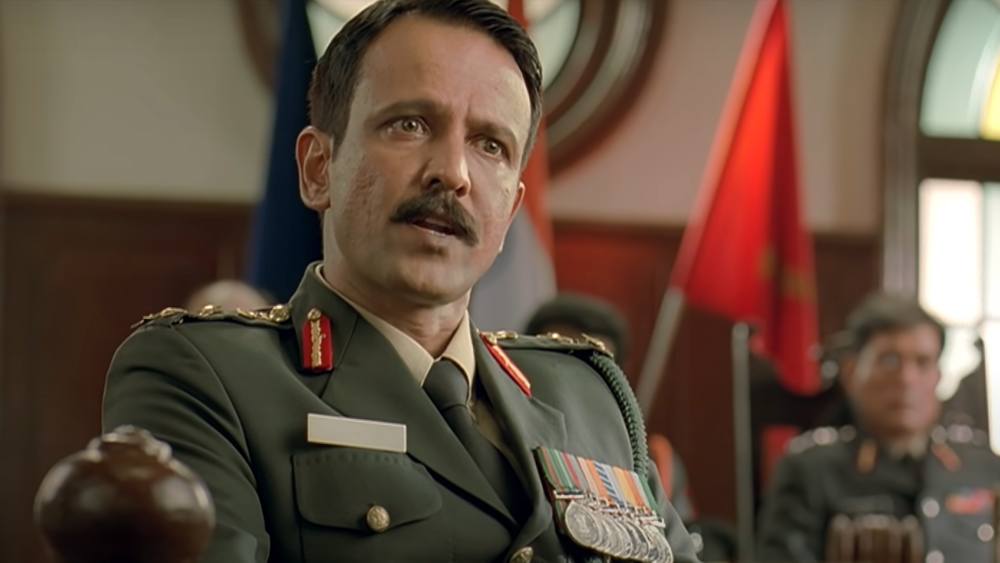
A Few Good Men, reimagined for a fractured nation. Shaurya transplants Aaron Sorkin’s courtroom drama to the uneasy heart of Kashmir, where questions of duty, identity, and ideology unfold less on the battlefield and more within the charged formality of a military trial. The film doesn’t linger in the valley; its Kashmir is psychological — a space where patriotism, prejudice, and institutional power intersect. Kay Kay Menon delivers a ferocious performance as a commanding officer whose patriotism curdles into something darker. Rahul Bose and Javed Jaffrey round out a cast that brings intelligence and restraint to a film more interested in moral ambiguity than easy verdicts.
Where to Watch: Zee5, YouTube
8. Haider (2014)
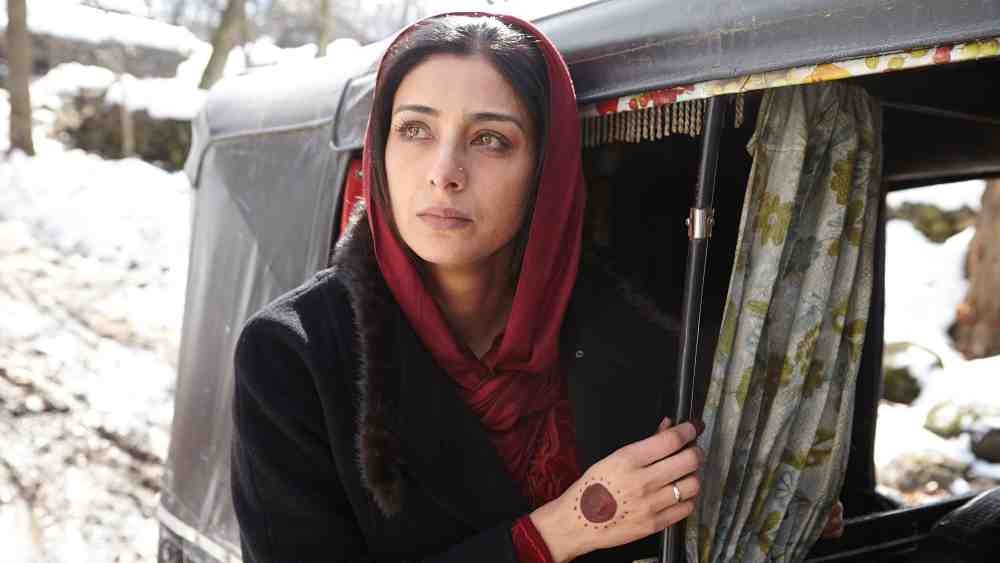
Vishal Bhardwaj’s Haider doesn’t just adapt Hamlet — it internalizes it, anchoring Shakespeare’s tragedy in the insurgency-scarred Kashmir of 1995. Co-written with Basharat Peer and drawing from his memoir Curfewed Night, the film follows Haider, a young man unraveling the mystery of his father’s disappearance, and, in the process, his own moral compass. The politics are not subtext — they’re the stage. Oedipal tension simmers just beneath the surface, and the personal collapse mirrors the region’s disintegration. Bhardwaj’s filmmaking is at its most assured: operatic when it needs to be, restrained when it matters. A brooding Shahid Kapoor leads a cast that includes Tabu, Kay Kay Menon, and Irrfan Khan — each bringing haunted depth to a story where grief, betrayal, and silence echo louder than gunfire. “Disappeared logon ki biwiyaan aadhi bewa kehlaati hain — half widows,” says Ghazala. Few lines have ever captured Kashmir’s agony with such brutal precision.
Where to Watch: Zee5
9. Half Widow (2017)
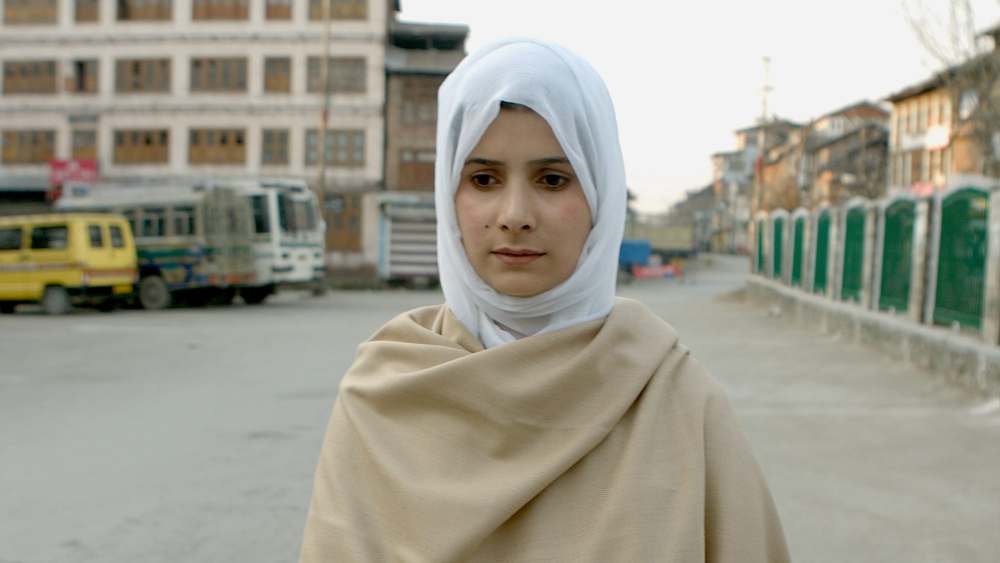
Danish Renzu’s Half Widow unfolds in quiet devastation. It follows Neela, a woman suspended in grief after her husband is abducted — a fate so common in Kashmir it has given rise to its own vocabulary: “aadhi bewa,” the half widow. The film doesn’t search for resolution. It dwells in the ambiguity of loss that offers no closure, no body, no end. Renzu’s realism is deliberate — local dialect, unfussy dialogue, lived-in detail — and Neelofar Hamid’s restrained performance gives Neela’s grief both dignity and weight. In a region without functioning cinemas, the film was screened at the Sher-i-Kashmir International Conference Centre. That, too, feels fitting — a story about a woman searching for answers, shown in a place where answers remain scarce.
Where to Watch: NA
10. Roja (1995)
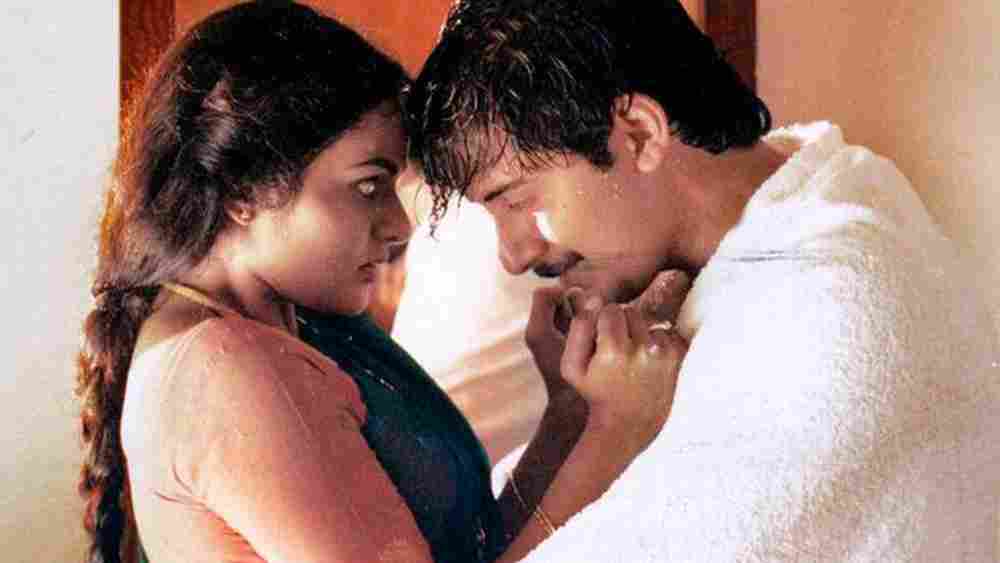
Mani Ratnam’s Roja begins as a love story and ends as a quiet political provocation. When a cryptologist from Tamil Nadu is abducted by Kashmiri militants, his wife, Roja, journeys into unfamiliar territory—both geographic and emotional—to find him. Inspired by a newspaper article and loosely echoing the Savitri-Satyavan myth from the Mahabharata, the film weaves personal devotion into the fabric of national identity. It marked A. R. Rahman’s musical cinematic debut and earned three National Awards, including the Nargis Dutt Award for Best Feature Film on National Integration. Ratnam doesn’t simplify the politics, but he does humanize them, threading conflict through character and emotion rather than rhetoric. Over three decades later, Roja remains essential—not just for what it said, but for how fearlessly it said it.
Where to Watch: Netflix, Prime Video, Zee5, YouTube
11. Valley of Saints (2012)
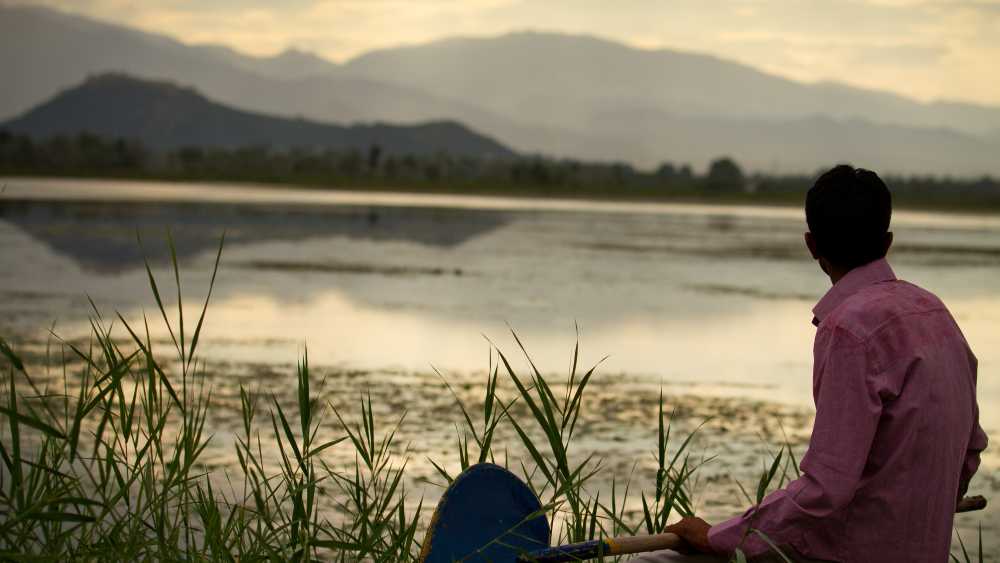
“If a place on the earth can lay claim to paradise, it is Kashmir, and if there is a place that embodies all the dark consequences of humanity, it too is Kashmir. It is a special land of forced contradictions,” notes critic Roger Ebert in his review. Blurring the lines between fiction and documentary, Valley of Saints narrates the story of a young tourist boatman named Gulzar. It’s the first film set in the endangered lake communities of Kashmir. A love triangle on one hand, and an investigation of political complexities on the other, the film is a peek into the many layers that govern the Kashmir conflict. The most heartwarming part? The film depicts a friendship so rare, it transcends the meaning of love.
Where to Watch: YouTube
12. Inshallah Kashmir (2012)
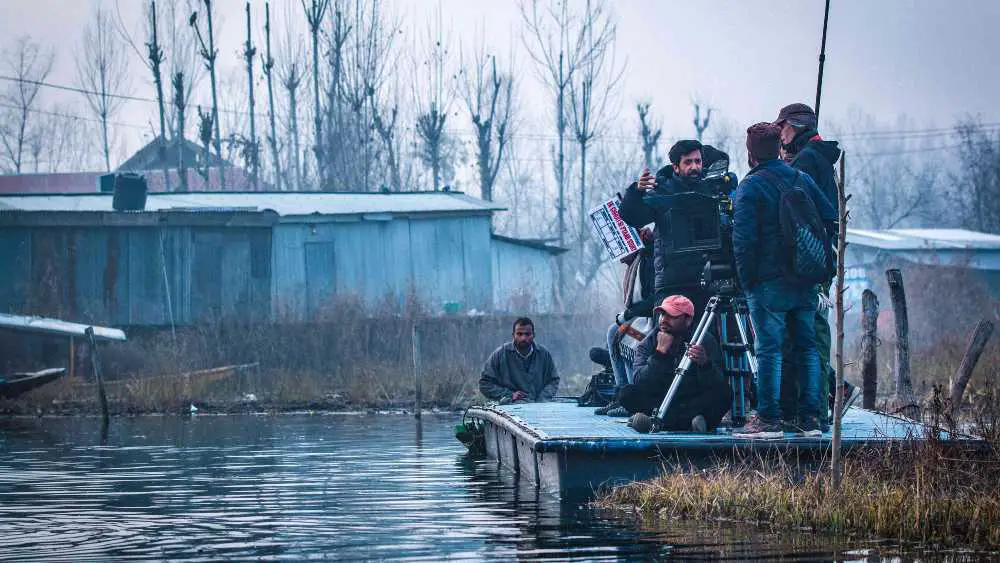
Ashvin Kumar’s Inshallah, Kashmir is a bruising act of listening. Composed of direct-to-camera testimonials from ordinary Kashmiris — militants, widows, soldiers, survivors — the film assembles a collective memory scarred by loss, silence, and the machinery of the state. There is no narration, no imposed arc. Just people speaking plainly about disappearances, torture, and the slow erosion of normal life. The horror, as always, lies in the casualness. A National Award winner for Best Investigative Film, Inshallah, Kashmir interrogates the promise of a secular, democratic republic by holding it against the testimonies of those who have lived its contradictions. What emerges is not just a documentary, but an archive of a people conditioned to survive what should never have been normalized.
Where to Watch: CultureUnplugged
There we are! Here the best films on Kashmir in Hindi cinema. I’ll leave you with this piece of poetry by Agha Shahid Ali, titled ‘The Blessed Word : A Prologue’
‘Let me cry out in that void, say it as I can.
I write on that void: Kashmir,
Kaschmir, Cashmere, Qashmir, Cashmere, Qashmir, Cashmir, Cashmire,
Kashmere, Cachemire, Cushmeer, Cachmiere, Cašmir. Or Cauchemar in
a sea of stories? Or: Kacmir, Kaschemir, Kasmere, Kachmire, Kasmir.
Kerseymere?’

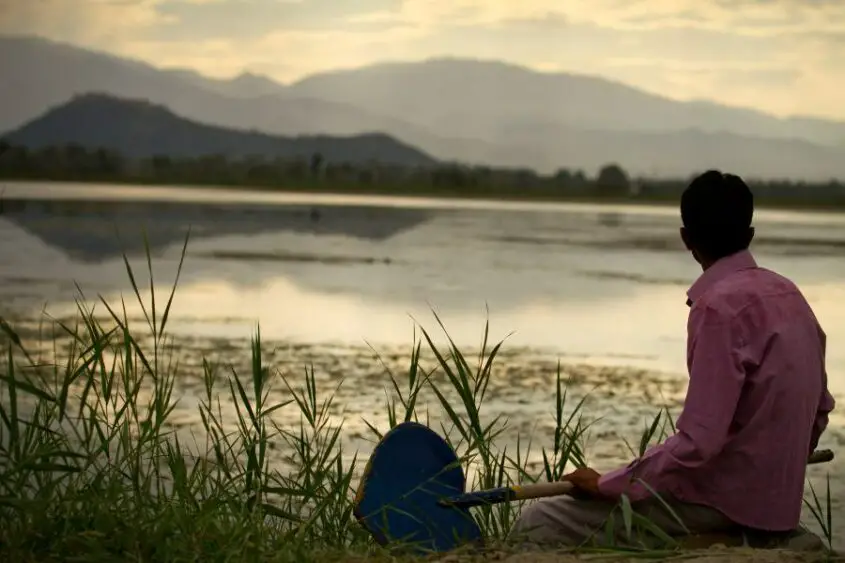
1 thought on “12 Essential Films On Kashmir Issue (& Where To Find Them)”
Comments are closed.